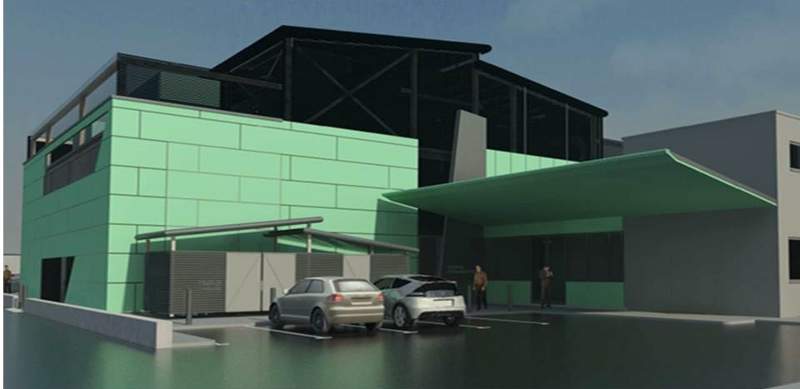In April 2018, Porton Biopharma Limited (PBL) opened a pharmaceutical fermentation facility at the Porton Down Science Park near Salisbury, Wiltshire, UK.
The new plant allows PBL to develop and produce its acute lymphoblastic leukaemia treatment, Erwinase®.
The facility is PBL’s second major investment, the company having opened a multimillion-pound freeze drying facility in November 2015.
Details of PBL’s pharmaceutical fermentation facility
The new state-of-the-art fermentation facility is spread over a 2,100m² area and used for manufacturing medical products in compliance with the latest pharmaceutical regulations. It is equipped with a new 3,000l fermenter.
The facility consists of the main fermentation hall; downstream processing rooms; steam, air and effluent treatment units; and other associated utilities.
The facility includes a viewing gallery from which visitors can view the plant’s processes without entering the cleanroom-standard manufacturing area.
The plant brings the new capacity on stream to meet the increasing global demand for PBL’s products.
Construction of the pharmaceutical fermentation facility
A ground-breaking ceremony for the construction of the pharmaceutical fermentation facility was held in May 2016.
Construction was followed by the demolition of older facilities and the building of a workshop and water plant room to support the facility. Equipment installation and pharmaceutical validation was implemented at the newly constructed facility in a phased programme.
Technology and production process at the new fermentation facility
The facility is equipped with the technical capabilities to translate research methodologies into production processes. It includes capabilities ranging from 2l benchtop fermenters to 100l production vessels, cell processing, prokaryotic and yeast fermentation. It also incorporates a range of production platforms, including Wave™, roller bottles and multi-layer disposable vessels.
The plant is also outfitted with product purification technology with sophisticated analytical methods, including liquid chromatography (LC) mass spectrometry (MS), high-performance liquid chromatography (HPLC), ultra-performance liquid chromatography (UPLC), electrophoresis, enzyme-linked immunosorbent assay (ELISA) and dynamic light scattering (DLS). It uses in-process and final product analyses, including forced degradation studies and stress testing.
Products produced at the fermentation facility
PBL manufactures a UK-licensed anthrax vaccine on behalf of the UK Government. This is supplied for occupational health purposes and to protect service personnel from the use of anthrax as a biological weapon.
PBL is working together with US-based company NanoBio to develop a next-generation anthrax vaccine at the Wiltshire facility.
PBL also produces Erwinase®, which is used for the treatment of acute lymphioblastic leukaemia (ALL) in children. The drug was approved by the US Food and Drug Administration (FDA) in November 2011. It is currently registered in 20 countries and commercialised in more than 75 worldwide. Erwinase is distributed and commercialised worldwide by Jazz Pharmaceuticals.
Marketing commentary on PBL
Based at Porton Down in Wiltshire, PBL was established in April 2015 to commercialise the pharmaceutical development and manufacturing capabilities that were previously within Public Health England.
The company offers expertise in the development and production of biologicals, including product characterisation, process and analytical validation and scalability for market. It also develops vaccines, therapeutic proteins and enzyme products and undertakes contract manufacturing at all stages of the product development and commercialisation lifecycle.





